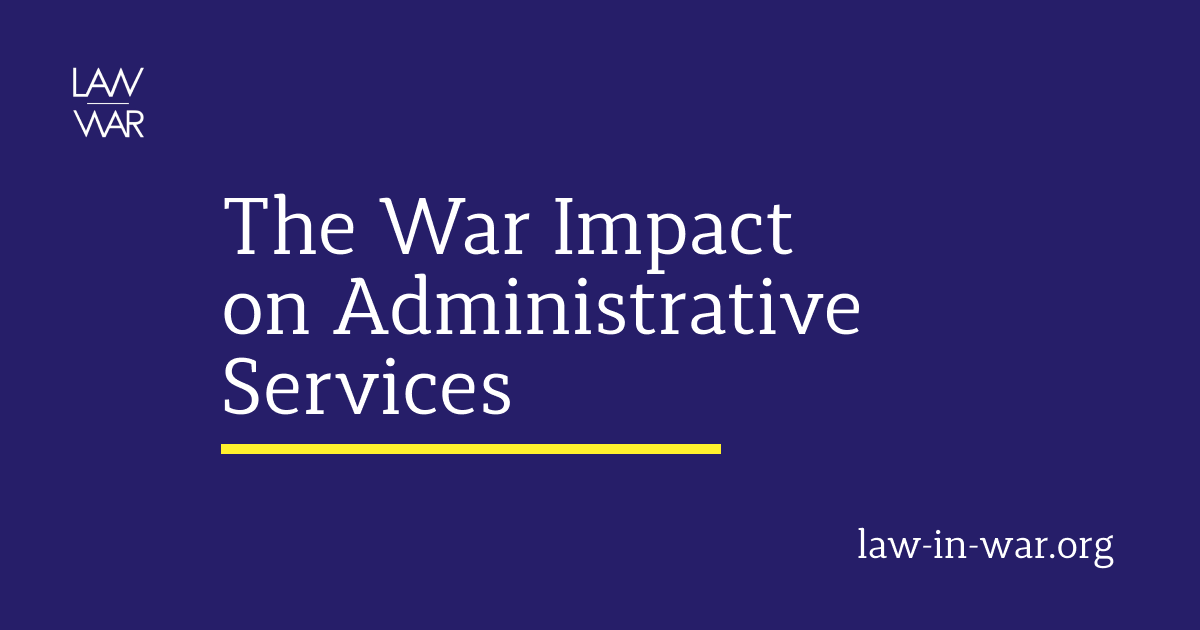The purpose of the study was to identify critical groups of administrative services, or individual services and recommendations to the state, in line with lessons-learned experience based on the active phase of the Russian war against Ukraine in the period from February 24, 2022 to ensure that citizens obtain necessary services while safety factors are considered.
According to researchers in administrative services, the Ukrainian government has successfully coped with challenges as a result of a full-scale war.
Experts say it was a well-reasoned decision to temporarily suspend provision of administrative services as well as deciding to gradually resume provision of services belonging to critical service groups. Decisions to prolong the period of validity of identity documents and prolonging social benefit disbursements were also welcomed by the experts.
This war has shown there is still room for improvement as far as security challenges relating to administrative service provision is concerned.
Ultimately, this will be relevant in the future, considering risks of further military aggression by Russia, including hybrid warfare and risks of natural and man-made disasters. Finally, some solutions may benefit from improvement to become more effective in a future peaceful environment.
It is worth noting the many quick and creative solutions developed by the Ukrainian government:
- Preservation of civil registration services with the possibility of data entry in the register at a later stage;
- Prolongation of the validity of expired passports and driver’s licenses;
- Prolongation of a driver’s license without a medical certificate; and,
- Automatic prolongation of social benefit disbursements and handling pension and social benefits payments regardless of a citizen’s place of residence or stay;
- Telephone confirmation of unemployment status;
- Marriage legalized in one day via videoconferencing and through witnesses; and,
- “e-Document”, “e-Help” without complicated procedures.
Some wartime solutions can be effective in peacetime and situations where potential security risks persist.
Experts assembled recommendations to be considered by state authorities responsible for public policy development in administrative services and related sectors such as the Ministry of Justice, the Ministry of Internal Affairs and the Ministry of Social Policy. Please review the specific recommendations provided by experts in the study materials.

